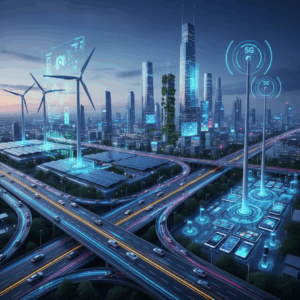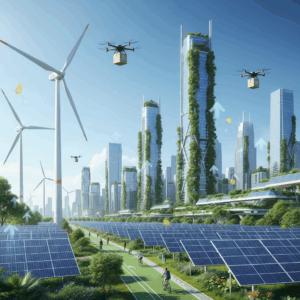Definition and context of the informal economy
The informal economy It encompasses income-generating productive activities that operate outside of state regulation. Characterized by a lack of records and contracts, these activities are common in developing countries.
This sector includes unregistered work, street vending, and small artisan workshops that do not comply with tax or labor obligations. Despite its illegality, it plays a crucial role in job creation.
Concept and main characteristics
The informal economy consists of economic activities without legal recognition or social protection, operating outside of state regulations. Its flexibility attracts people excluded from the formal market.
Within this economy, small businesses, informal work, and street vending are prominent. Informality is characterized by the absence of social security, low incomes, and a lack of job security.
Furthermore, this economy facilitates the innovation and rapid adaptation to market demands, providing a path to self-employment and entrepreneurship in urban environments.
Global prevalence and labor force participation
The International Labour Organization estimates that over 601% of the global workforce participates in the informal economy. In developing regions, this figure exceeds 851%, reflecting its global significance.
This sector is especially relevant in contexts with high rates of formal unemployment, functioning as a means of subsistence for millions of workers worldwide.
Its magnitude demands political attention due to its social, economic, and fiscal implications, making it essential to understand its scope in order to design appropriate strategies.
Advantages and limitations of the informal economy
The informal economy represents a vital option for millions facing formal unemployment. It offers a means of subsistence and a source of income in complex circumstances.
However, this modality presents significant challenges, both for workers and for the State, resulting in occupational risks and the exclusion of basic rights.
Analyzing its advantages and limitations is key to understanding its role in the global economy and the social implications it entails.
Economic and social benefits
The informal economy allows for the immediate absorption of labor, crucial in environments with high formal unemployment. It provides income for those excluded from the traditional labor market.
Furthermore, it fosters innovation and the development of small businesses, promoting economic self-sufficiency and helping vulnerable sectors to generate their own income.
Their social contribution also includes the economic inclusion of marginalized groups, who would otherwise face greater difficulties in surviving.
Flexibility and adaptability
One of the strengths of the informal economy is its flexibilitywhich allows for rapid adaptation to changes in demand and the economic environment.
This economy does not require large investments or complex procedures, facilitating entry for new entrepreneurs and independent workers in urban and rural areas.
Adaptability is essential to survive in contexts where the formal market is rigid or inaccessible to many.
Occupational and tax risks
Informal workers lack legal protection, which exposes them to unsafe working conditions and the absence of labor rights such as social security and compensation.
From a fiscal perspective, the informal economy limits tax collection, affecting state investment in essential public services and infrastructure.
This situation contributes to inequality, as it limits the resources available for social programs and perpetuates the precariousness in which many families live.
Precariousness and exclusion of rights
Informal employment implies limited job stability and low income, without guarantees of access to health services, pensions or protection against arbitrary dismissals.
This precariousness generates vulnerability and social exclusion, hindering improvements in the quality of life and overcoming conditions of poverty.
The lack of legal recognition deepens this exclusion, perpetuating a cycle where workers do not have access to basic rights or effective labor justice.
Social consequences of the informal economy
The informal economy has a complex social impact, acting both as a mechanism for inclusion and a generator of inequality. Its role extends beyond economic production, influencing the social structure.
While it opens up opportunities for sectors excluded from formal employment, it also contributes to maintaining conditions of poverty and limits access to essential rights, affecting integral development.
This balance between social benefits and harms demands a deep look to understand its effects and formulate appropriate responses through public policies.
Contribution to inclusion and mitigation of unemployment
The informal economy acts as a buffer against unemployment, incorporating people who cannot find opportunities in the formal sector. This facilitates their basic economic inclusion.
By generating income through accessible activities, it allows vulnerable sectors to have a path to subsistence, preventing a further increase in unemployment and social exclusion.
Furthermore, self-employment and informal micro-businesses promote economic autonomy and support the integration of marginalized populations into the labor market.
Reproduction of poverty and inequality
Despite expanding access to work, the informal economy perpetuates poverty due to the low incomes and lack of social protection for its participants.
The lack of stability and job insecurity limit the possibilities of improving economic conditions in the long term, maintaining structural inequalities.
Without access to labor rights, education, or comprehensive health care, informal workers face barriers to overcoming poverty and achieving social mobility.
Impact on quality of life and economic development
Informal employment involves precarious working conditions that negatively affect the quality of life of its participants, including aspects of health and well-being.
Furthermore, it limits the country's ability to develop a sustainable and competitive economy, as it restricts investment and reduces overall productivity.
The lack of tax contributions reduces public resources for essential services, affecting social and economic development at a macro level.
Perspectives and challenges in public policy
The informal economy requires a balanced approach to public policy that recognizes both its social role and its inherent risks. Regulation and social protection are urgently needed to improve conditions.
These policies should seek to progressively integrate informal workers into the formal system without losing their capacity for inclusion and flexibility, promoting a fairer and more sustainable economic development.
Need for regulation and social protection
Regulating the informal economy is fundamental to guaranteeing labor rights and access to social services, improving the quality of life of those who depend on these activities.
Social protection must be extended to offer security in health, pensions and working conditions, avoiding the precariousness that characterizes informality.
The State faces the challenge of designing regulatory frameworks that recognize the diversity of informal activities and facilitate their inclusion without hindering their dynamics.
Balance between inclusion and economic formalization
The key challenge is to achieve a gradual formalization that maintains the necessary flexibility to incorporate excluded sectors without creating barriers that marginalize them.
Inclusive formalization should facilitate access to benefits and resources, supporting micro-entrepreneurs and self-employed workers through incentives and administrative simplification.
Promoting financial education and capacity building helps informal actors transition to formal schemes that favor their stability and economic growth.






